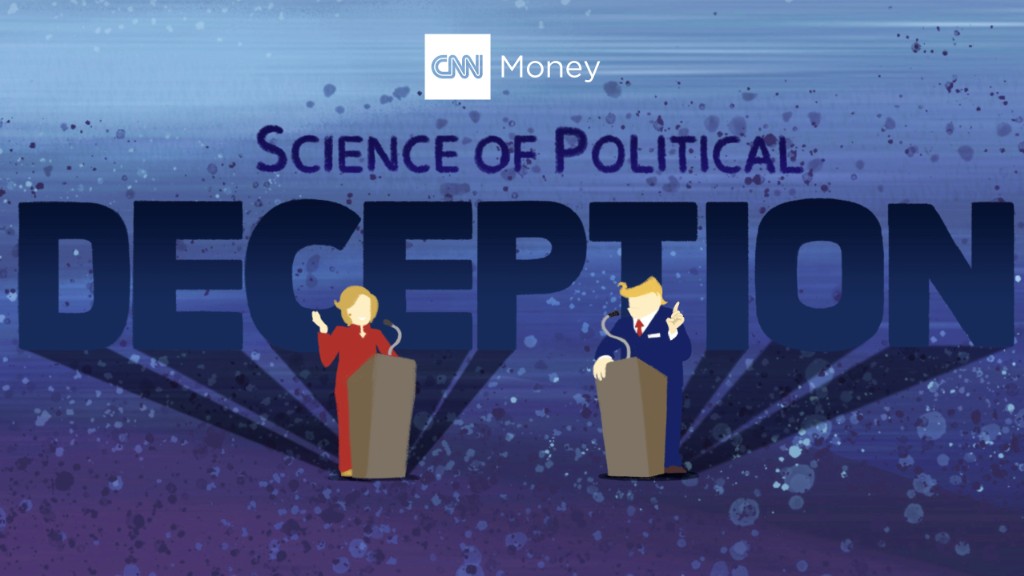
Steven McCornack, Ph.D., is a professor at the University of Alabama at Birmingham, where he studies communication and deception. The views expressed here are his own.
Donald Trump is not a liar. Nor is Hillary Clinton. Sure, they both lie. Yet, neither is a liar. Why?
Lying is a practical choice, not a personal characteristic. Whereas "dishonesty" has long been thought of as a trait -- people are "liars" or they are "honest" -- deception is actually an outcome of negative attributes and behaviors. If I'm the kind of person who cheats, steals and betrays, I'm going to have to deceive to keep others from punishing me for these failings.
I've spent the majority of my adult life studying how and why people lie. My work, conducted across the last three decades, points to two broad conclusions: Lies are rare and people lie for practical reasons.
First, people don't lie that often. The late scholar Ronnie Turner was the first to observe this, in a study in the 1970s. Turner and his colleagues had people record "important conversations" and then bring their notes back to the lab. Subjects analyzed their own statements in terms of truth. Much of what people said was less than truthful, peppered with spin, light exaggeration or -- most commonly -- omission. But how frequently did people baldly lie? Not often.
Don't believe it? Ask yourself, how many lies have you told in the last day? If you're like most people, according to deception researcher Tim Levine, that number will be in the low single digits, if not zero.
On the other hand, a small proportion of the population tells a lot of lies. Some people tell dozens a day. This pattern perfectly maps onto patterns of criminality: a small percentage of the population does almost all of the cheating, stealing and killing that victimizes everyone else.

Second, people lie for practical reasons; specifically, when the information they have in their heads is too problematic to share.
I did a series of studies with Dr. Kelly Morrison, my colleague at the University of Alabama at Birmingham. We started with a situation in which you are "going to the library to get some work done." Afterward, your partner asks about your evening. Then we added complicating elements. A friend invites you to a party, and you forgo your work. The friend is someone your partner hates. You and your partner have fought previously about your partying. You flirt with your ex at the party. You and your ex hook up. In total, we had eight different versions of the same situation.
No one lied when they "went to the library and worked." Why would they? Most people also were honest in regard to simple "party attendance." But as soon as other elements crept into the mix -- you went with a friend your partner hated, you flirted with an ex -- people began lying. Why? Because lying in these situations is easier than struggling with how to truthfully frame the negative information in positive ways.
Therein lies the most important takeaway regarding who will deceive and when. People lie when they think they need to -- when they've had incriminating thoughts or behaved in destructive, ruinous ways.
Trump's bullsh*t: Why his supporters don't care that he's lying
All of which brings us back to Donald Trump and Hillary Clinton. Why should anyone be perplexed by their propensity to lie? Each has a history of questionable behavior and corresponding duplicity. Clinton behaved recklessly in handling sensitive emails and stated that her use of a private server "was allowed" -- which Politifact noted was a lie.
Trump brings to his candidacy a breathtaking backlog of problematic thoughts and behaviors. He has been accused of groping women and ripping off contractors, and has lent his name and stamp of approval to a university accused of fraud. It's no surprise, therefore, that he lies with greater frequency than any politician on record.
Show me someone who compulsively lies, and I'll show you someone with much to hide. But Trump also takes it to the next level; lying to attain a host of goals that have nothing to do with hiding bad stuff. Appear impressive? Say thousands of people couldn't get into my rally. Amp anti-Muslim sentiment? Say hoards of Muslims cheered 9/11. Discredit President Obama? Say he founded ISIS.

Politifact documents that more than 70% of what Trump publicly says is "false," "mostly false," or "pants on fire." As a deception theorist, my explanation for this is simple: somewhere along the way Trump learned -- and was rewarded for learning -- that he can more efficiently get what he wants by lying than telling the truth. Fortunately for the world, this viewpoint is not shared by most people.
The truth is that we all long for honesty in the public sphere. But we have to temper such longing with recognition of a sad fact: If lies typically are designed to veil damning information, then they're a necessity within national politics. Lamenting this is like complaining that we have to breathe air.
We all have "problematic" information in our heads, when it comes to how our beliefs, attitudes and values put us at odds with others. Place yourself in the role of politician, and ask: Would it be possible to reconcile your views with those who have opposing outlooks, in a way that gets them to want to vote for you, without lying? The answer, I think we all can agree, is no. We shouldn't expect those who run for and serve in public office to answer this question any differently.

